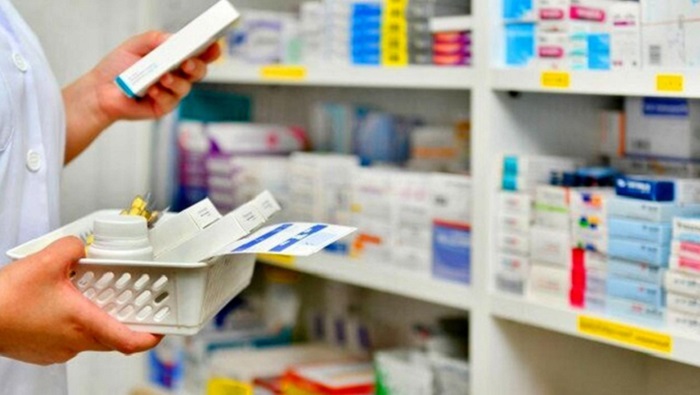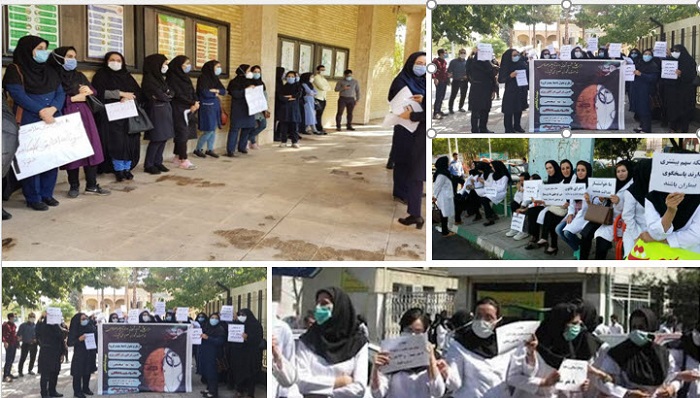
Iran’s pharmaceutical sector is going through an unheard-of crisis. Even state media has been warning for some time about the dire situation of production and drug smuggling in the import and export of medicine as the sector is on the verge of bankruptcy. These facts refute the talking points repeated by the network of Western apologists and lobbyists for the Iranian regime, placing the blame for Iran’s medication crisis squarely on the shoulders of the regime.
The vast majority of Iranian society is now at a point where they cannot afford treatment if they have a serious illness as a result of rampant poverty and inflation.
In an interview with the semi-official Fars News Agency on June 4, former Hemophilia Center director Ahmad Ghavidel stated that “every time we cover news of scientific achievements to the Iranian hemophilia community, the question among these patients is when exactly will this treatment be finally available to them.
For instance, Hemlibra, an injection-only drug that can be used once per month, has been marketed internationally for many years. However, the nation’s drug list has never included it!” explained Ghavidel.
Monopolized manufacturing
Ghavidel compared the pharmaceutical sector of the regime to the auto sector, where monopoly and corruption allow senior regime officials and their inner circles to steal from Iran’s general populace, increasing suffering and death. He bemoaned that the nation’s thalassemia community had been suffering from this excessive support for domestic production for years and that their protests had spilled out into the streets.

Smuggling illicit imported drugs
Iran is experiencing a similar trend with the growing practice of smuggling in imported medications on a regular basis. Globally recognized vaccines were widely accessible during the Covid-19 outbreak in Iran’s black market, and the regime was actively involved throughout the entire process.
Tents and other supplies provided by other nations even during the recent severe earthquakes and floods in Iran ended up on the black market rather than helping those in need.
Selling illicit drugs
In more recent incidents, the state-run Jahan-e-Sanat newspaper reported on the “Stone Age-style anesthesia” crisis on June 20 in a report titled that same day. Despite the dearth of these medications in public hospitals, all high-quality medications were sold on the black market for a significant sum. In an interview with Jahan-e- Sanat on June 20, Kourosh Shamimi, the chairman of the board of directors of the Tehran Private Hospitals Association, said, “Unfortunately, all the medicine in the public sector enters the black market through people with connections.
Exporting illicit drugs
Iranian smugglers and looters with ties to the government no longer regard any restrictions or boundaries on their activities. People recall all too well that former regime leader Mahmoud Ahmadinejad mentioned several smuggling docks connected to the Islamic Revolutionary Guards Corps (IRGC) in his official speech, and for years, reports of smuggled drugs being exported from Iran have been making the rounds in the media.
According to a September 21, 2020 report by the Fars news agency, Iran’s drug smuggling network is so pervasive and out of control that the amount of smuggled medication has surpassed even the nation’s official exports.
In a press conference on March 13, Faramarz Ekhteraee, the chairman of the board of directors of the Syndicate of Human Medicine Industry Owners, forewarned of the closure of pharmaceutical production lines and compared it to Iran’s now-extinct textile industry.
This is additional evidence that the mullahs’ regime in Iran has not spared any area of the nation from corruption, graft, mafia control, and looting. The claims made periodically by Tehran’s well-known crowd of apologists and lobbyists in the West and mainstream media are refuted by the regime’s own state media. Iran’s drug shortage is entirely the result of the mullahs’ regime.
MEK Iran (follow us on Twitter and Facebook), Maryam Rajavi’s on her site, Twitter & Facebook, NCRI (Twitter & Facebook), and People’s Mojahedin Organization of Iran – MEK IRAN – YouTub








